When rule of (no) law reigns supreme

As the world catches a glimpse, but certainly not the full picture, of the horrors that have transpired in Bangladesh, a lack of transparency and a deliberate, disingenuous, and frankly dangerous effort by the authorities to conceal the truth has emerged. Should one be surprised? Probably not, given how this government has responded to any and all forms of civic dissent over the past decade, from any and all sources, political or not. Even for a political party that has established a track record of misusing its political activists in cahoots with law enforcement agencies to repress rather than protect citizens, this latest crackdown marks an alarming low.
The suppression of freedom of speech and expression, disregard for constitutionally protected fundamental rights, sidelining ideas from civil society on governance reform, rejection of fostering political competition between the opposition and the ruling party, and the rampant politicisation of theoretically impartial institutions of the state stand in direct contrast to the ruling party's own belief that it is the principal architect and only feasible guarantor of the country's economic stability. The economic stability storyline is progressively being rejected by a growing proportion of Bangladeshis, who are disgruntled because the developmental upshots on paper—flaunted through eye-catching infrastructural projects, rather than an innate focus on improving the average person's quality of life – are not benefiting them on a day-to-day basis.
The sheer level of wilful ignorance or, more dangerously, a defensive political posture that compels public sector stakeholders, such as law enforcement personnel, to present an embarrassingly partial or, worse, blatantly incorrect version of events can be described as authoritarian at best and as reckless at the least. This version of events places the majority of the blame on political opponents of the ruling party before any proper independent investigation and without reflecting on the government's own errors. Giving a misleading account of the chain of events that led to significant death and destruction to provide media cover for a political party that is in a crisis of its own making seems to characterise both the authorities' political and public policy reactions in the days following the deployment of the armed forces.
A narrative from both the government and some mass media outlets promotes a version of events that is far detached from the reality experienced by foreign observers, international media outlets, and, most importantly, the country's own citizens. This narrative pits the protection of the state, including vandalised public assets, against the security of the individual, contravening the very principle of the rule of law that should guide the actions or inactions of any government with an ounce of consideration for the overarching health of its relationship with its electorate. Sadly, that relationship was neither respected nor maintained when aggression, rather than reconciliation, was leveraged to tackle innocent protesters and their genuine grievances about a policy matter.
Bangladesh, long accustomed to a robust protest culture and equally forceful government countermeasures, is now experiencing a novel concoction of shock, anger, confusion, fear, and cruelty. Young people feel an extreme absence of hope regarding their individual futures and acute concerns for their own safety and that of their peers. Both the velocity and traumatic scenes of the unrest have left the country reeling, making it more dejected than it has been in a very long time. Since 2014, the Awami League has governed Bangladesh without a proper electoral mandate—anyone who argues otherwise is living in a fool's paradise—and its loss of connection with the pulse of the average voter has highlighted just how out of touch it is with the political sentiments and policy needs of Bangladeshis.
Young people—mostly university students and their growing cohort of allies—caught in the crossfire of politically incited violence by ruling party decision-makers, combined with suppression, have borne the brunt of the turmoil. Eyewitness accounts and international media point to one underlying cause: the authorities' heavy-handed response, characterised by indiscriminate attacks on unarmed civilians and blatant violations of basic human rights under the guise of protecting national security. No amount of political cover or attempts to bury the truth through social media control and censorship will succeed.
Beyond the immediate deaths and arrests, consider the long-term psychological impact on young people. They cannot trust their government or seek accountability from the authorities. Forms of civic rebellion and an outpouring of anger, both violent and non-violent, will inevitably appear, as the authorities have turned the people they should serve into their very adversaries.
The government has only one way to improve the situation: it should exhibit humility and an apologetic tone and admit how dreadfully it mishandled a crisis that could have been resolved through reconciliatory efforts with the student protesters. Instead, the government has aggravated the dissatisfaction of a population already burdened by pent-up frustration stemming from the ongoing cost-of-living crisis, high levels of inflation, endemic public sector corruption, outward money laundering by the elites, growing youth unemployment, and the partisan monopolisation of public institutions that benefit only a few.
The experiences of those who have lived through the chaos speak volumes. Testimonials from citizens who are living through these dark days and nights challenge the sanitised versions of events presently being portrayed in the country by the authorities. The government's narrative focuses on the destruction of public assets, including a metro rail station and several government buildings — actions that are absolutely condemnable, but secondary to the suffering inflicted on Bangladeshis by those oath-bound to protect them. The value of human life has been cast aside. The desire to display unopposed and unfettered strength has overshadowed any devotion to the rule of law and the policy stances that should naturally arise from respecting it.
I want to end on a personal note. My words would be stronger and my arguments more forceful in condemning the ruling party for their actions if I were writing for an outlet operating in a functioning democracy. Bangladesh is not such a place. This newspaper, like others in the country, must exercise caution due to operational risks from tools like the Cyber Security Act and an environment where any statement perceived as a threat to the authorities can lead to legal repercussions for both the newspaper and the writer. Thus, while my analysis represents a toned-down version of my true thoughts, there is one central message that we all have: the opposite of the rule of law has prevailed in Bangladesh over the past few weeks. This is not the end, but a troubling indication of what lies ahead.
Mir Aftabuddin Ahmed is a public policy columnist. He can be reached at [email protected]. Views expressed in this article are the author's own and do not reflect those of any organisation, institution, or entity with which he is associated.
Follow The Daily Star Opinion on Facebook for the latest opinions, commentaries and analyses by experts and professionals. To contribute your article or letter to The Daily Star Opinion, see our guidelines for submission.

 For all latest news, follow The Daily Star's Google News channel.
For all latest news, follow The Daily Star's Google News channel. 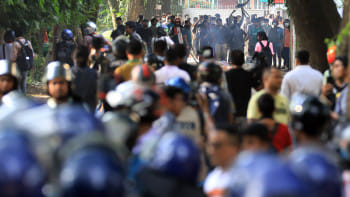
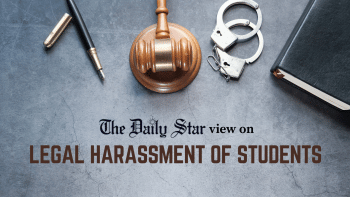


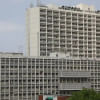
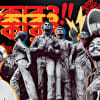
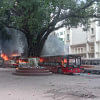

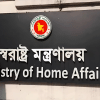


Comments